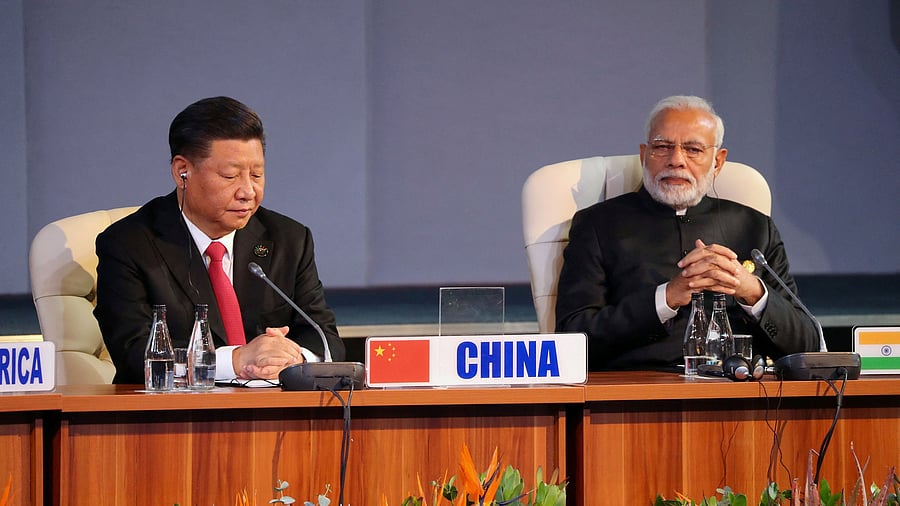
File Photo: Prime Minister Narendra Modi and China's President Xi Jinping attend the BRICS summit meeting in Johannesburg, South Africa, July 27, 2018.
Credit: Reuters Photo
New Delhi: Beijing has lodged a protest with New Delhi after Prime Minister Narendra Modi responded to a message from Taiwan’s President Lai Ching-te, who had congratulated him for leading the National Democratic Alliance to victory in the parliamentary elections in India.
Just a day after congratulating Modi and the coalition led by the Bharatiya Janata Party for the election victory and advocating for “a healthy and stable” relationship between China and India, Mao Ning, a spokesperson of the Ministry of Foreign Affairs of the communist country’s government, conveyed Beijing’s objection to the exchanges between the leaders in New Delhi and Taipei.
“My sincere congratulations to Prime Minister @narendramodi (Narendra Modi) on his election victory,” Lai posted on X in his first outreach to New Delhi after taking over as the president of Taiwan. “We look forward to enhancing the fast-growing #Taiwan-#India partnership, expanding our collaboration on trade, technology & (and) other sectors to contribute to peace & (and) prosperity in the #IndoPacific.”
“Thank you @ChingteLai for your warm message. I look forward to closer ties as we work towards mutually beneficial economic and technological partnership,” Modi wrote on X, responding to the post.
“There is only one China in the world, and Taiwan is an inalienable part of the territory of the People's Republic of China. The one-China principle is a recognized basic norm of international relations and a universal consensus of the international community,” Mao said on Thursday. “India has a serious political commitment to this and should recognise, be vigilant, and resist the political plot of the Taiwan authorities. China has lodged representations with the Indian side.”
The One-China policy recognizes only the People's Republic of China, which came into existence in 1949 after the communists defeated the nationalists in the civil war of China. It does not recognize the existence of Taiwan (or the Republic of China), where the nationalists retreated to and based the seat of their government after losing to the communists.
India, like most nations, has been adhering to the One-China policy since 1949, recognising only the People's Republic of China. That is why India and Taiwan do not have formal diplomatic and consular missions in their respective countries. The India-Taipei Association, which is headed by a diplomat, functions as New Delhi’s de facto diplomatic and consular mission of India in the capital of Taiwan. The Taipei Economic and Cultural Centre (TECC) in New Delhi similarly serves as the de facto diplomatic and consular mission of Taiwan, officially the Republic of China (RoC), in the capital of India. A TECC was also set up in Chennai in 2012.
Taiwan is keen to expand its quasi-diplomatic presence in India, where many of its technology companies want to set up manufacturing bases in the wake of its escalating tension with China. A new TECC is likely to be set up in Mumbai.
China’s April-May 2020 moves to unilaterally change the status quo along its disputed boundary with India in eastern Ladakh and the consequent two-year-long-and-still-unresolved military stand-off between the two sides, however, triggered calls to Modi’s government to review its policy on Taiwan to send out a message to the communist country. The government, however, has not yet initiated any such move.
New Delhi has earlier reaffirmed its One-China policy in all its joint statements with Beijing. But it did not do so for eight years starting 2010 — in response to the communist country's policy of issuing “stapled visas" to the residents of Jammu and Kashmir, instead of normal visas pasted on passports issued by the Government of India.
The Modi government, however, had in July 2018 virtually re-asserted its adherence to the “One-China policy” and made Air India replace “Taiwan” with “Chinese Taipei” in the list of destinations on its website.
Taiwan had then strongly reacted, stating that the move by Air India could be seen as India “succumbing to the unreasonable and absurd pressure from China.
